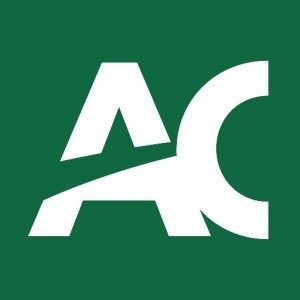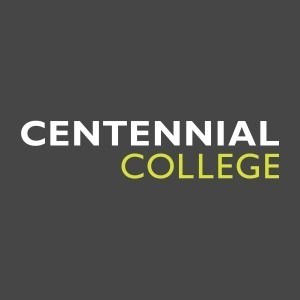Photos of university / #uofreginaofficial
The Bachelor of Science in Nursing (BSN) program at the University of Regina is designed to prepare students for rewarding careers in professional nursing practice. This comprehensive program combines foundational knowledge of health sciences with practical clinical experiences, ensuring graduates are well-equipped to provide high-quality patient care in diverse healthcare settings. Students will explore areas such as anatomy, physiology, psychology, community health, and ethics, alongside specialized nursing topics including adult health, maternal and child health, mental health, and leadership in healthcare. The curriculum emphasizes critical thinking, evidence-based practice, cultural safety, and interprofessional collaboration, fostering the development of compassionate and competent nursing professionals. Throughout the program, students engage in hands-on clinical placements in hospitals, community agencies, and other healthcare facilities, allowing them to apply theoretical knowledge in real-world scenarios under the supervision of experienced registered nurses and instructors. The program is structured to ensure a seamless integration of classroom learning with clinical practice, culminating in a comprehensive preparation for entry into the Canadian Registered Nurses' Licensing Examination. Graduates of the BSN program are qualified to work in a variety of healthcare environments, including hospitals, clinics, community health organizations, and public health agencies. Furthermore, the program emphasizes leadership, advocacy, and lifelong learning skills, enabling graduates to adapt to the evolving needs of the healthcare system. The University of Regina's nursing program is committed to fostering a supportive learning environment that encourages diversity, inclusion, and innovation, preparing students not just for a career but for a meaningful contribution to society through nursing practice. Upon completion, students are eligible to apply for licensure as a Registered Nurse (RN) in Saskatchewan and across Canada, opening up numerous professional opportunities nationwide and beyond.
The Bachelor of Science in Nursing (BSN) program at the University of Regina is designed to prepare students for a rewarding career in the healthcare industry by providing comprehensive education and hands-on clinical experience. The program combines theoretical knowledge with practical skills to develop competent, compassionate, and professional nurses ready to serve diverse populations in various healthcare settings.
Throughout the program, students engage in a curriculum that covers foundational topics such as anatomy and physiology, microbiology, psychology, and health assessment, alongside core nursing courses. These courses focus on areas including nursing theory, community health, adult health, pediatric and maternal health, mental health, and leadership in nursing practice. Students learn about evidence-based practice, healthcare ethics, and health promotion strategies, preparing them to deliver patient-centered care with sensitivity and professionalism.
The program emphasizes experiential learning through extensive clinical practicums in hospitals, community clinics, and other health organizations across Saskatchewan and beyond. These placements enable students to apply their classroom knowledge in real-world settings, develop critical thinking skills, and cultivate clinical competencies under the supervision of experienced instructors and practitioners.
In addition to technical skills, the program fosters the development of communication, teamwork, and leadership abilities essential for effective nursing practice. Students are encouraged to participate in interdisciplinary collaboration, understand diverse cultural perspectives, and advocate for patient rights and safety. The curriculum also integrates emerging healthcare trends such as telehealth, health informatics, and personalized medicine, ensuring graduates are prepared for the evolving landscape of healthcare.
The program is designed for students who aspire to enter the healthcare field as registered nurses and provides pathways for advanced education or specialization in areas such as nurse practitioner roles, public health nursing, or research. Graduates of the BSN program are well-equipped to sit for licensure examinations to become registered nurses and are positioned for employment opportunities in hospitals, clinics, community health agencies, schools, and other healthcare institutions throughout the region and beyond.
The University of Regina's nursing program is committed to fostering an inclusive learning environment that promotes diversity, equity, and social justice. Dedicated faculty members bring a wealth of clinical experience and academic expertise to support student success. With modern facilities, simulation labs, and access to cutting-edge healthcare technologies, students receive a high-quality educational experience that prepares them to make meaningful contributions to the health and well-being of their communities.
Program Requirements for the Bachelor of Science in Nursing (BScN) at the University of Regina include several key components designed to prepare students for professional nursing practice. Applicants must have completed a high school diploma or equivalent with a strong academic record, particularly in sciences such as biology, chemistry, and mathematics. Admission typically requires a minimum grade point average (GPA) which varies year to year, and prospective students are encouraged to demonstrate prior experience in healthcare settings or volunteer work to strengthen their application.
Once admitted, students must complete foundational coursework in areas such as anatomy, physiology, microbiology, psychology, and ethics, providing a comprehensive background necessary for patient care. The program integrates both theoretical instruction and practical clinical experience. To qualify for graduation, students are required to successfully complete all designated coursework, maintain a minimum cumulative GPA (often around 2.0 or higher), and demonstrate competency through clinical placements in various healthcare environments.
Clinical components are essential and involve supervised practice in hospitals, community health agencies, and other clinical settings to ensure students develop essential skills in assessment, intervention, and patient advocacy. Additionally, students must complete specific lab and simulation exercises designed to hone practical skills in a controlled environment. The program emphasizes the development of professional and ethical conduct consistent with Canadian healthcare standards.
In order to meet licensing requirements upon graduation, students are also required to pass the National Council Licensure Examination for Registered Nurses (NCLEX-RN). Students must also maintain current immunizations, clear criminal background checks, and complete training in areas such as First Aid and CPR as mandated by health regulatory bodies. International students may need to meet additional English language proficiency requirements, such as TOEFL or IELTS scores, to demonstrate their ability to succeed in the program and communicate effectively in clinical settings.
Overall, the program's entry and graduation requirements are structured to ensure that graduates are well-prepared to provide safe, competent, and ethical nursing care in diverse healthcare environments.
Want to improve your English level for admission?
Prepare for the program requirements with English Online by the British Council.
- ✔️ Flexible study schedule
- ✔️ Experienced teachers
- ✔️ Certificate upon completion
📘 Recommended for students with an IELTS level of 6.0 or below.
The Bachelor of Science in Nursing (BSN) program at the University of Regina offers various options for financing studies to support students in their academic journey. Tuition fees for the Nursing program are determined annually and are available through the university's official budget documentation. In addition to standard tuition, students should consider costs related to textbooks, clinical supplies, and additional fees for laboratory and simulation sessions. The university provides information on payment deadlines and accepted methods of payment, including online banking and credit cards.
Many students utilize financial aid options provided by the government, such as student loans and grants, which are accessible through the Saskatchewan Student Loans Program. The University of Regina also offers its own financial aid packages, including scholarships, bursaries, and awards based on academic achievement, financial need, or specific criteria such as community involvement or leadership qualities. Applicants are encouraged to complete the provincial and university-specific scholarship applications early to maximize their chances of receiving financial support.
Work-study programs are available to help students gain practical experience while earning income. These programs typically offer part-time employment opportunities within the university or in partnership with healthcare facilities, allowing students to balance work and study effectively. Additionally, some students may consider private or external scholarship opportunities provided by community organizations, healthcare agencies, or professional nursing associations.
International students enrolled in the Nursing program should explore additional financing options such as international student scholarships or work opportunities permitted under their student visas. The university also provides financial counselling services to assist students in planning and managing their educational expenses.
Overall, the University of Regina aims to ensure accessible education by providing comprehensive financial support options, helping students focus on their studies and future nursing careers without undue financial stress. It is recommended that prospective and current students regularly consult the university’s official website or contact the financial aid office for updated information on available funding and application procedures.
The Bachelor of Science in Nursing (BSN) program at the University of Regina is designed to prepare students for a professional career in nursing by providing a comprehensive education grounded in liberal arts, sciences, and health sciences. The curriculum emphasizes the development of essential skills such as critical thinking, clinical judgment, communication, and leadership, all within an ethical framework that values patient-centered care, diversity, and community engagement. The program combines theoretical coursework with practical clinical experiences situated in diverse healthcare settings, enabling students to integrate knowledge and skills in real-world situations.
Students in the program learn about a wide range of topics including anatomy, physiology, microbiology, nursing theory, health assessment, pharmacology, community health, mental health, and leadership. The program is structured to progress from foundational knowledge to more complex clinical reasoning and decision-making skills, culminating in supervised practicum placements that provide hands-on experience in hospitals, clinics, and community health agencies. The university’s faculty members are experienced professionals committed to mentoring students through their educational journey and supporting their professional development.
Admission requirements typically include a high school diploma with a strong academic record, particularly in sciences and math, and certain prerequisite courses. The program may also require an interview or additional assessments. Upon graduation, students are eligible to write the licensing examination for Registered Nurses (RN), administered by the Saskatchewan Registered Nurses Association (SRNA). Graduates of the program are equipped to work in various healthcare environments, including hospitals, long-term care facilities, community health organizations, and schools. They may also pursue postgraduate education or specialization in areas such as pediatrics, geriatrics, emergency nursing, or nurse practitioner roles.
The University of Regina’s Nursing program is accredited and maintains a strong focus on community health and Indigenous health issues, aligning with regional healthcare needs. The program aims to produce competent, compassionate, and culturally sensitive nurses prepared to meet the evolving demands of the healthcare system. It benefits from the university’s active partnerships with regional health authorities and healthcare organizations, enriching the educational experience with practical exposure and employment opportunities after graduation.




